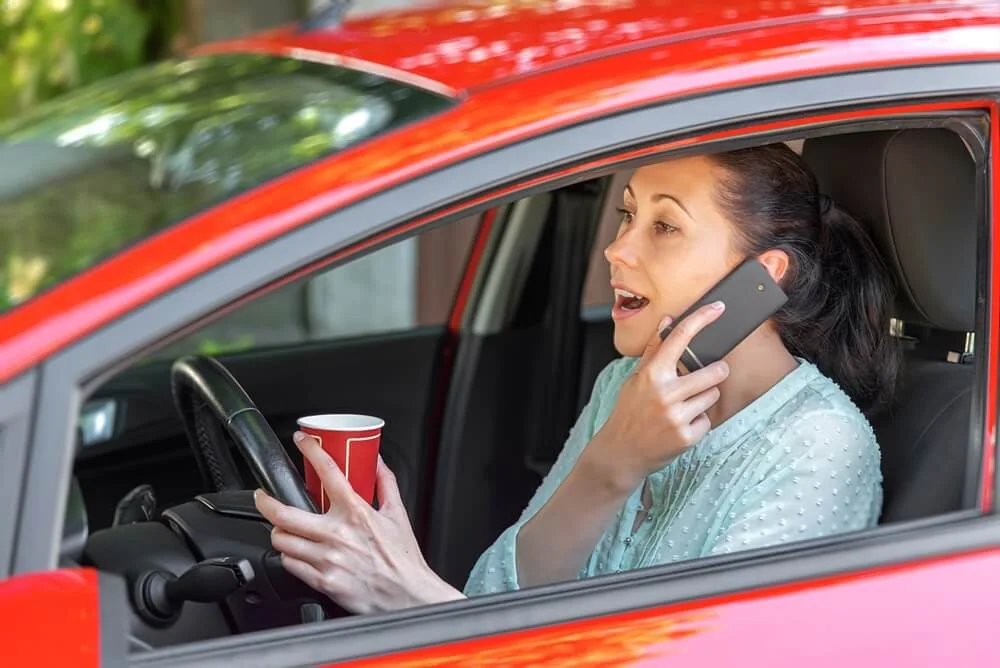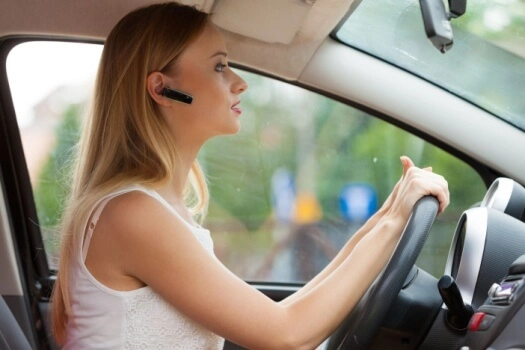
If your driver’s ed course wasn’t too far in the past, you might remember learning to keep your hands on the steering wheel at ten o’clock and two o’clock or maybe at nine o’clock and three. Regardless of the exact clock positions you learned, the key lesson was always to keep both hands on the wheel while driving.
It’s still good advice today. In the Peach State, a police officer can pull you over and give you a costly ticket if you have one or both hands occupied with a phone or are watching a video while driving. And one or more of those tickets could, in turn, raise your auto insurance rates — or even cancel your coverage.
That’s why it pays to know about and respect the Georgia hands-free law, also sometimes known as the Georgia cell phone law or the distracted driving law of Georgia.
Understanding the Basics of Georgia’s Hands-Free Law
Distracted drivers cause accidents. And few things in modern life are more distracting than a cell phone. That’s essentially the premise of the state’s hands-free law, which was enacted in 2018.
According to distracted driving laws in Georgia, you can’t hold your phone or even touch any part of your body while driving. And that doesn’t just mean that you have to ignore your device while the tires are spinning. Chatting, texting, or surfing the web on your phone is a violation, even if you’re at a dead stop in front of a red light or held motionless by a traffic jam.
The reason for the law is that your phone is a distraction. Your attention is elsewhere. And that can be dangerous to yourself, your passengers, and anyone else on the road.
What Is Allowed and What Isn’t?
The Georgia hands-free law means you can’t manually use your cell phone to talk, send texts, surf the web, or do anything else. You can, however, use hands-free technology that lets you converse or even send voice texts while driving. And while you can’t watch videos while driving, it is legal to glance quickly at a GPS screen if it’s on your dashboard, and you don’t have to touch it.
It shouldn’t need to be mentioned, but you can’t watch a movie or check out cute kitten videos while driving. Keep your eyes on the road, your hands on the wheel, steer clear of road rage, and keep your mind focused on operating your vehicle, and you’ll be fine.

Understanding the Penalties for Non-Compliance
A first-offense ticket for non-compliance will cost $50. You’ll also be assessed one penalty point on your driver’s record. A second offense will cost $100 and two penalty points. Your third and any additional offenses will cost $150 and three points. Keep in mind that 15 total points over a 24-month period will get your license suspended.
It’s not all bad news. You can get your charges dropped on the first offense if you prove to the court that you’ve had hands-free technology installed in your car. An offense only becomes a second or third charge if it happens within 24 months of the first offense.
Now for the potentially bad news.
Impact on Auto Insurance Premiums
Your auto insurance company can raise your rates if you have multiple violations of the Georgia cell phone law. Like a driver who gets too many speeding tickets, you’re considered a higher risk for at-fault accidents if you’ve been branded a distracted driver.
Some insurance companies might even cancel your policy if they determine that you’ve become a high-risk policyholder due to too many Georgia hands-free law violations.
If that happens, or if your coverage rates skyrocket, your best bet is to contact an independent insurance agent. Instead of working for a single insurance provider, independent agents have contractual relationships with several insurers. If you lose coverage with one company, your independent agent can reach out to several insurers who will take your business and help you choose the most affordable option.
Tips to Stay Compliant with Georgia’s Hands-Free Law
Stay off your phone while driving! Turn the phone off if the temptation is too great. Sometimes it’s as simple as that. Here are a few more valuable tips:
- Install Bluetooth technology that will enable you to place and receive calls or even send voice texts
- Let friends and loved ones know you’ll be driving. They can send you texts, voice mail, or emails, but they shouldn’t expect an immediate response.
- If you’re expecting an important call, get off the road when you can, turn off your engine, and return the call.